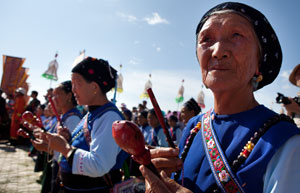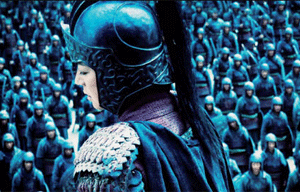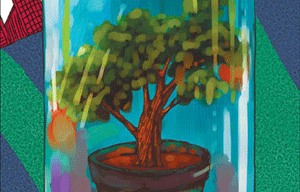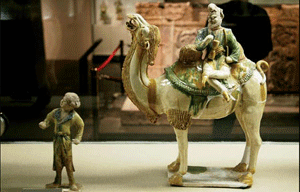Patting the cats
Updated: 2011-10-23 08:52
By Andrew Sun (China Daily)
|
|||||||||
|
 |
|
Dave Salmoni does not fear big cats though he has been attacked by them - he says that curiosity always supercedes the danger. Provided to China Daily |
You would think a zoologist who spends months alone in the wilderness would have an anxiety attack in crowded Hong Kong. But that's not the case with large predator specialist and television presenter Dave Salmoni. The big and burly Canadian, who was in Asia to talk up his latest animal program, World's Deadliest Towns (for the Discovery Channel), is enjoying a beer among the skyscrapers and looking forward to some Cantonese roast goose for dinner. Salmoni is the rare breed who is as comfortable in the concrete and the African jungle. "People are always shocked," he says. "They say 'oh, you must hate the city.' But I like people and I like animals too. It's natural for me to want both but I don't think it's something other people understand."
Growing up just outside of Toronto, Salmoni as a kid always put pictures of lions and tigers in his room. After studying zoology in school, he went to work at a local zoo in 1998 to get closer the big beasts he always had a fascination with.
"As long as I can remember I've been interested in animals. But it was half way through university when I decided I really want to be around animals. I don't just want to study them or learn about them. I want to be near them. I found out later the only reason the zoo hired me was I was a big guy and I could shovel a lot of poo."
At 6-foot-3 and 220 pounds, he's no Jane Goodall. In his first week at the zoo, a 500 pound lion named Bongo got off his leash and approached Salmoni in the pen. Instead of showing fear and running for his life, he smiled and played with the animal as if it was a big puppy.
"He looked friendly so I walked up and gave him a hug and a pat," Salmoni recalls. "The owner came running and said, 'that is an abnormal reaction. Maybe you're good at this.' Since then, I've been a lion trainer."
He might not fear big cats but Salmoni learned he always needs to respect them. One time at the zoo, Bongo attacked him because the lion felt possessive over a small piece of carpet. That encounter led to the documentary After The Attack.
"My curiosity always supersedes the danger. Now I recognize the danger is there so my first reaction is always safety. Although I don't have a visceral fear reaction I certainly don't want to die," he explains while showing me the scars still on arm.
His television break came in 2000 when he brought two captive Bengal tigers to an African reserve to teach them how to hunt and survive in the wild. This became Living With Tigers. Then came other programs like Into The Lion's Den and Into The Pride, each with Salmoni interacting with more man-eaters.
Matters of conscience
His hands-on action is not without critics who subscribe to a more non-interventionist approach or think his theatrics sacrifice the animal's benefit for the sake of lively television.
"I try to do everything with a conscience," Salmoni insists. "Never ever have I done a project where the animal and people are not left in a better situation than when we started. I can understand the comments but it comes from people not listening to the information or maybe I didn't explain well enough. In Living With Lions, at one point a lion charges at me. They think, 'Why is he angering these lions?' Well, those lions were originally marked to be killed. I eventually made them more comfortable with people so they get to have a life.
"Other times, they say 'Oh, he's got them too used to people.' Well, those lions were in a controlled eco-tourist park environment and my resolve is to build a structure so humans could come into contact with the animal more comfortably. Then the tour guides make more money, the park can pay for the land and for anti-poaching protection, and the animals are in a better place."
Heartbreaking, not fun










